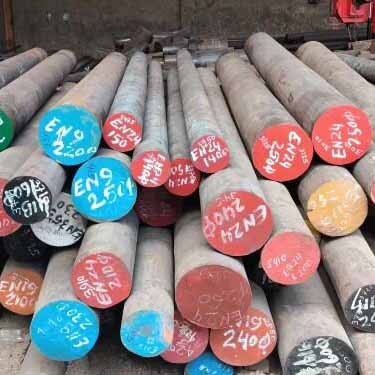
EN24 alloy steel round bars is commonly used in applications such as gears, shafts, axles, and crankshafts in the automotive, aerospace, and machinery industries.
Details About EN24 alloy steel round bars, including chemical composition, mechanical properties, physical properties, and typical heat treatment:
| Element | Minimum (%) | Maximum (%) |
|---|---|---|
| Carbon (C) | 0.35 | 0.45 |
| Silicon (Si) | 0.10 | 0.35 |
| Manganese (Mn) | 0.45 | 0.70 |
| Phosphorus (P) | - | 0.035 |
| Sulfur (S) | - | 0.035 |
| Chromium (Cr) | 1.30 | 1.70 |
| Nickel (Ni) | 1.30 | 1.70 |
| Molybdenum (Mo) | 0.20 | 0.35 |
EN24 alloy steel undergoes various heat treatment processes to achieve desired mechanical properties:
Annealing: Heating the material to around 800-850°C and then slowly cooling it in the furnace to relieve internal stresses and improve machinability.
Normalizing: Heating the material to around 870-910°C, followed by air cooling to room temperature. This process refines the grain structure and enhances the mechanical properties.
Hardening: Heating the material to a temperature range of 860-900°C and then quenching it in oil or water to achieve high hardness and strength.
Tempering: Reheating the hardened material to a temperature range of 550-650°C and holding it for a specific time to reduce internal stresses and improve toughness without significantly sacrificing hardness.
Proper heat treatment is crucial to optimize the mechanical properties of EN24 alloy steel for specific applications.